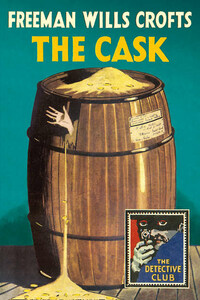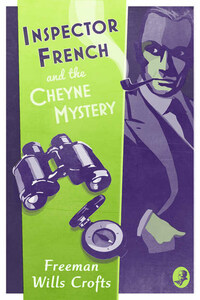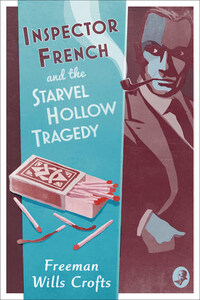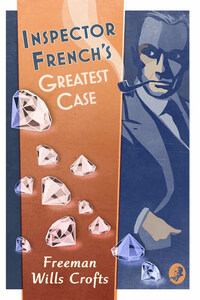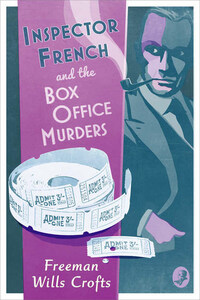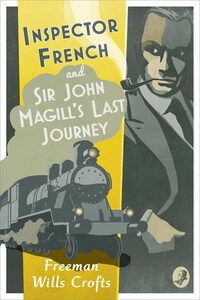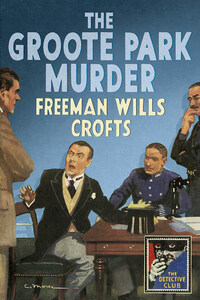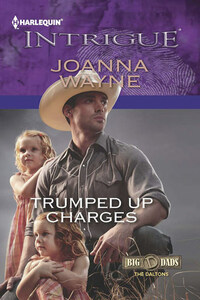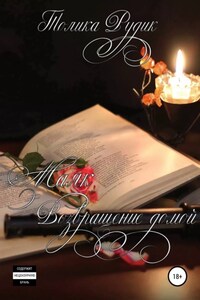Published by COLLINS CRIME CLUB
An imprint of HarperCollinsPublishers Ltd
1 London Bridge Street
London SE1 9GF
www.harpercollins.co.uk
First published in Great Britain by The Crime Club by W. Collins Sons & Co. Ltd 1921
Copyright © Estate of Freeman Wills Crofts 1921
Introduction © Estate of Freeman Wills Crofts 1946
Cover design © HarperCollinsPublishers Ltd 1921, 2016
A catalogue copy of this book is available from the British Library.
This novel is entirely a work of fiction. The names, characters and incidents portrayed in it are the work of the authorâs imagination. Any resemblance to actual persons, living or dead, events or localities is entirely coincidental.
All rights reserved under International and Pan-American Copyright Conventions. By payment of the required fees, you have been granted the non-exclusive, non-transferable right to access and read the text of this e-book on screen. No part of this text may be reproduced, transmitted, down-loaded, decompiled, reverse engineered, or stored in or introduced into any information storage and retrieval system, in any form or by any means, whether electronic or mechanical, now known or hereinafter invented, without the express written permission of HarperCollins.
Source ISBN: 9780008190521
Ebook Edition © September 2016 ISBN: 9780008190538
Version: 2016-08-09
TO
DR ADAM A. C. MATHERS,
IN APPRECIATION OF HIS KINDLY
CRITICISM AND HELP
MESSRS COLLINS have done many things which have delighted meânotably their acceptance of the MS of The Cask in the first instanceâbut few have given me greater pleasure than their decision to include this book in their Pocket Classics Series. It is a great honour to confer on a detective story.
They have asked me to write a foreword, describing briefly how the book came into being, and this is it.
Well, unhappily for the foreword, nothing could have been more prosaic and uninteresting. I did not retire from the world, and with a plentiful supply of wet towels for my head and strong coffee at two-hourly intervals, cover the floor of my room with sheet after sheet of closely-written manuscript. Instead, I got ill and had a period of convalescence. During this period I became so bored that I didnât know what to do, and to try to fill the time I asked for a pencil and a few sheets of notepaper. I began to write down what seemed the most absurd and improbable things I could think of. Before I knew what was happening, a whole morning was gone.
This was eminently satisfactory, and I was even more pleased when the second morning passed equally quickly. At last a chapter was finished. As a sort of joke I read it to my wife. She expressed delight (unhappily, mingled with amazement). I remember so well finishing up: âHarkness and the cask were gone!â and her enthusiastic approval. However, her praise made me persevere, and I continued writing till I was well enough to take up again my normal job of railway engineering.
The manuscript was put away and almost forgotten, but some time later I re-read it. Rather to my surprise it seemed as if something might be made of it and I began to revise and re-write. In this a kindly neighbour (to whom I dedicated the book) gave me immense help. I read each chapter to him as it was finished, and he would stop me and say: âI donât like that. No one but a complete idiot would have done any such thing. Youâll have to alter it.â Most salutary: it made the book a deal better than it would otherwise have been.
At last it was finished, and in fear and trembling, yet with a thrill, I sent it to Messrs A. P. Watt, the literary agents. Then ensued a breathless period of waiting. Eventually there came a letterâone of the kindest I have ever receivedâfrom Mr J. D. Beresford, the distinguished novelist and critic, who had read the story on behalf of Messrs Collins. He said that he and Messrs Collins liked Parts I and II, but they didnât think that Part III was so satisfactory. Would I consider rewriting this last part on a different basis?
